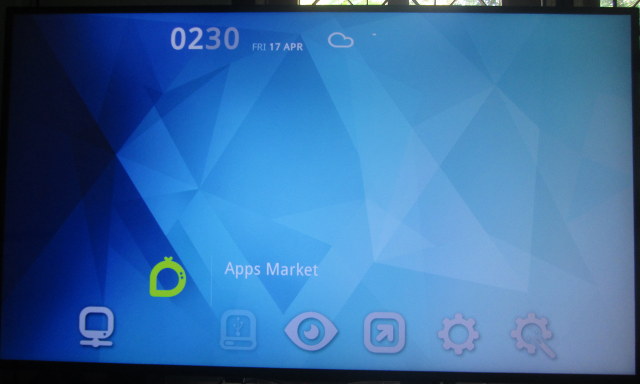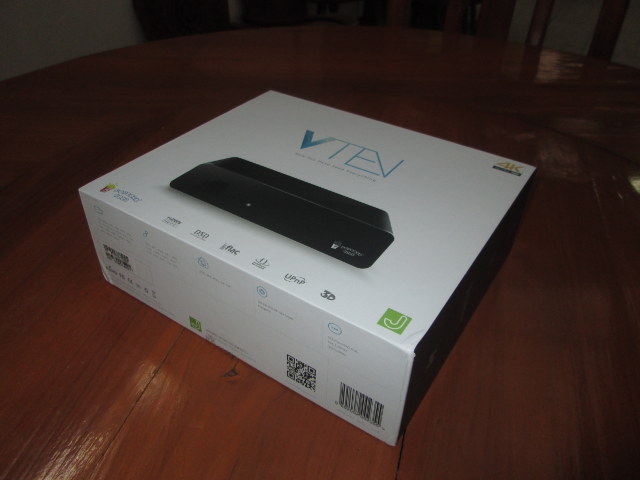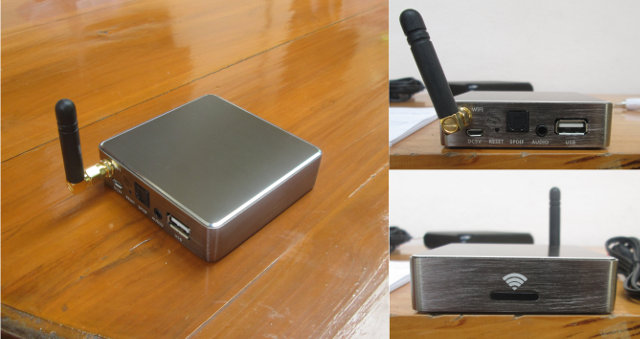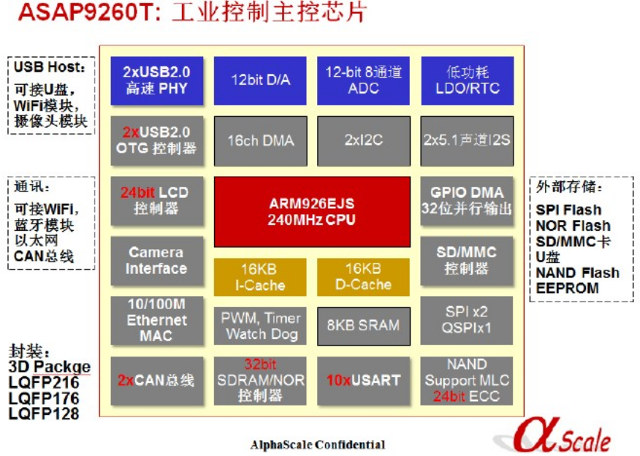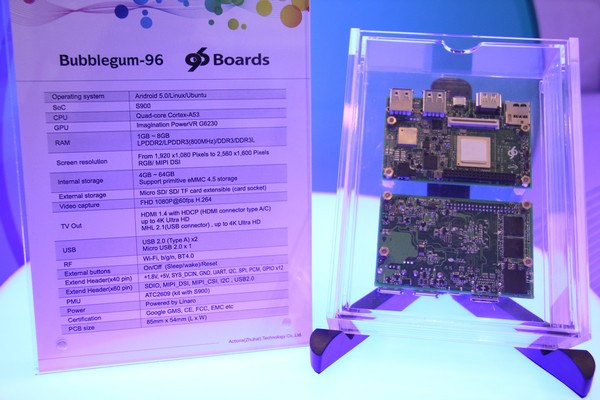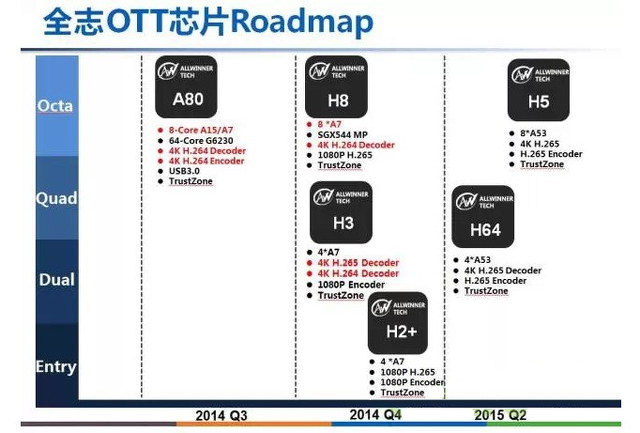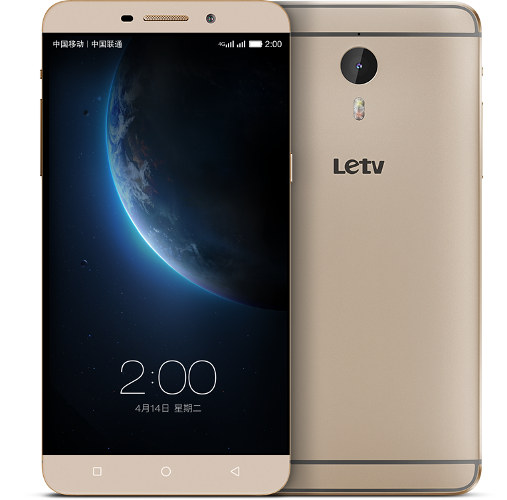Popcorn Hour VTEN a Linux based media player powered by Sigma Designs SMP8757 ARM Cortex A9 processor. Contrary to the many Android TV boxes I tested in the last few years, the device is dedicated to media playback, even though it has an App Store with 59 apps including YouTube, Facebook, and Twitter. I’ve already taken a few pictures of the device and board, so today, I’ll go through the user interface, quickly test the app store, go through my library of video test files, and check if HDMI audio pass-through is indeed working. Popcorn Hour VTEN User Interface I’ve connected VTEN to an Ethernet Gigabit switch, the HDMI port to Onkyo TX-NR636 AV receiver which itself is connected to LG 42UB820T 4K UHD TV, and the 5V/3A power supply. Pressing the On/Off switch at the back of the player will start it, and the boot takes just under one […]
Popcorn Hour VTEN 4K Linux Media Player Unboxing & Teardown
Cloud Media (aka Syabas) sent me their latest Popcorn Hour VTEN media player. It supports HDMI output up to 4K, H.265 video codec, and features an eSATA connector, as well as optical and coaxial S/PDIF connectors. Today, I’ll show some pictures of the kit, and teardown the box to checkout the hardware, and in a few days, I’ll report on the user interface, video playback, and HDMI audio pass-through capabilities. Popcorm Hour VTEN Unboxing The unexpected device was sent via Fedex in the package shown below. It lists some of the key features such as H.265, DSD (Direct Stream Digital), FLAC, Matroska, UPnP, 3D, and 4K Ultra HD support, as well as the specs, and more features and package content in English, French, Italian, Spanish, German, Dutch, Swedish, and Danish. The box comes with an IR remote control and two AAA batteries, an HDMI cable, a SATA cable, a 5V/3A […]
RaidSonic Releases Firmware and Source Code for Atheros AR9331 Wi-Fi Audio Streamers
RaidSonic is a German company releasing products such as media players and multimedia accessories under their ICY BOX brand. One of those products is ICY Box IB-MP401Air music streaming received based on Atheros AR9331, and that looks very similar to SoundMate M2 I reviewed last year. But if you look on their product page, you’ll find out a few download links: ICY BOX IB-MP401Air (multilang) – The Quick Start Guide and User’s manual in English and German IB-MP401Air (Source code) – a 648 MB rar file with source code for U-boot and OpenWRT IB-MP401Air (Firmware) – The firmware IB-MP401Air (Open Source Software) – Just the open source licenses So I’ve downloaded the source code file (IB-MP401Air_Sources_and%20License_Terms.rar) to have a look. It has two compressed files, one with the license, and IB-MP401Air_Sources.tar.gz with the source code.
|
1 2 3 4 5 6 7 |
tar xzvf IB-MP401Air_Sources.tar.gz cd dns320B_GPL20150212/ ls -l total 12 -rwxr--r-- 1 jaufranc jaufranc 1400 Apr 16 16:49 building-the-firmware.txt drwxr-xr-x 14 jaufranc jaufranc 4096 Feb 12 10:54 dns320B_GPL20150212 -rwxr--r-- 1 jaufranc jaufranc 925 Feb 12 08:25 making-u-boot.txt |
The file showing how to build the firmware (OpenWRT) explains you should not use […]
AlphaScale ASM9260 ARM9 Processor Details and Development Board
Yesterday, as I wrote a Linux 4.0 Changelog, I noticed a new ARM processor called AlphaScale ASM9260, and I thought it might be interesting to find out more. A Google search would only return results from the Linux kernel mailing list and mirrors, so I checked out the code a bit to find out its an ARM9 processor made by AlphaScale Integrated Circuits Systems, Inc, based in Wuxi, China. The company website alphascale.com does not work, but I found out the processor is sold on Taobao for 38 RMB (~$6), and there’s also a development board (ASM9260DVK) for 498 RMB or about $80, and that’s basically the only two links were I could find any details. AlphaScale ASM9260T is arm ARM926EJS processor clocked at 240 MHz, 16GN I-cache and D-cache, 8KB SRAM, with the following peripherals: 32-bit SDRAM/NOR interface MLC NAND 24-bit ECC 2x USB 2.0 OTG, 2x USB 2.0 […]
Bubblegum-96 Development Board Complies with 96Boards, Features Actions Semi S900 64-bit ARM Processor
We’ve already have two 96Boards compliant boards formally announced with HiSilicon Hikey and Qualcomm Dragonboard 410c, and Actions Semiconductor was also expected to release theirs soon. Albeit it’s not been officially announced yet, the company has been showcasing their Bubblegum-96 board at the Hong Kong Electronics Fair 2015. Bubblegum-96 development board specifications: SoC – Actions Semi S900 quad core Cortex A53 with PowerVR G6230 GPU System Memory – 1 to 8GB LPDDR2 / LPDDR3(800MHz) / DDR3 or DDR3L Storage – 4 to 64 GB eMMC 4.5 flash + micro SD slot Video Output – HDMI 1.4 with HDCP up to 4K, MHL 2.1 up to 4K Connectivity – Wi-Fi 802.11 b/g/n, Bluetooth 4.0 USB – 2x USB 2.0 ports, 1x micro USB 2.0 port Expansion 40-pin LS (Low Speed) Expansion connector – UART, I2C, 12x GPIOs, SPI, PCM, 1.8V, +5V, GND… 64-pin HS (High Speed) Expansion connector – DSI, CSI, […]
Linux 4.0 Release – Main Changes, ARM and MIPS Architectures
Linus Torvalds “Ima Sheep” released Linux Kernel 4.0 on Sunday: So I decided to release 4.0 as per the normal schedule, because there really weren’t any known issues, and while I’ll be traveling during the end of the upcoming week due to a college visit, I’m hoping that won’t affect the merge window very much. We’ll see. Linux 4.0 was a pretty small release both in linux-next and in final size, although obviously “small” is all relative. It’s still over 10k non-merge commits. But we’ve definitely had bigger releases (and judging by linux-next v4.1 is going to be one of the bigger ones). Which is all good. It definitely matches the “v4.0 is supposed to be a_stable_ release”, and very much not about new experimental features etc. I’m personally so much happier with time-based releases than the bad old days when we had feature-based releases. That said, there’s a few […]
Allwinner H-Series OTT SoC Roadmap Adds H5 and H2+ Processors
Previously Allwinner only had A-Series processor such as A10 that were used in tablets and media players, but they’ve recently launch H-series processors for “Home entertainment” such as H64, H8 or H3 SoCs that have been specifically designed for media players and OTT (Over-the-top) boxes. The company has unveiled its OTT SoC roadmap at the Hong Kong Electronics Fair which adds two new processors Allwinner H2 and Allwinner H5. Allwinner H2+ will a quad core Cortex A7 processor support H.265 video decoding, 1080p decoding, and TrustZone support, and should the cheapest processor of the family. Based on the chart above, the processor must have been sampling by the end of last year, so H2+ media players should come to market very soon. Allwinner H5 will be at the other end of the scale, featuring eight Cortex A53 cores, a 4K H.265 decoder, an H.265 encoder (1080p?), and TrustZone support as […]
LeTV Smartphones Feature USB Type C connectors, Mediatek Helio X10 and Snapdragon 810 Processors
LeTV has launched three new smartphones namely LeTV S1, LeTV S1 Pro, LeTV Max with zero bezel on its sides, a new USB type C reversible connector, and powered by Mediatek Helio X10 octa core Cortex A53 processor (S1) and Qualcomm Snapdragon 810 big.LITTLE octa core Cortex A53 & A57 processor (S1 Pro & Max) combined with 3 to 4GB RAM, and up to 128GB internal storage. LeTV smartphones specifications: SoC S1 – Mediatek Helio X10 (MT6795) octa core Cortex A53 @ 2.2 Ghz with PowerVR G6200 GPU @ 700 MHz S1 Pro & Max – Qualcomm Snapdragon 810 quad core Cortex A53 + quad core Cortex A57 in big.LITTLE configuration with Adreno 430 GPU System Memory S1 – 3 GB LPDDR3 S1 Pro & Max – 4 GB LPDDR4 Storage S1 – 16, 32 or 64 GB eMMC 5.0 S1 Pro – 32 or 64 GB eMMC 5.0 Max […]


